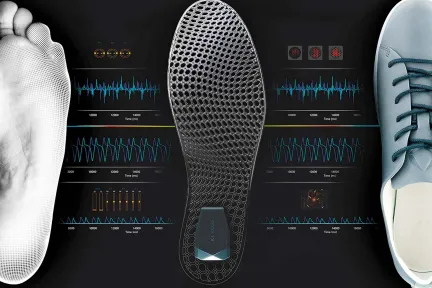Putting the individual at the center of the customer experience
In June 2018, Dassault Systèmes acquired a majority stake in software firm Centric PLM.
We spoke to Philippe Loeb, Vice-President, Home & Lifestyle, Consumer Packaged Goods & Retail Industries at Dassault Systèmes, about this new addition to the Group.
Why is the acquisition of Centric PLM important for Dassault Systèmes?
Centric PLM is a US firm focusing on providing ready-to-use solutions for companies in the fashion and retail industries. Its software allows information to flow smoothly between fashion companies and their suppliers. That’s crucial in this industry; you have very little time to bring large quantities of products to market, so you need to be able to communicate rapidly and effectively. Centric PLM allows a company to develop collections more quickly and make fewer mistakes. Companies are launching more and more collections each year; this is a fundamental trend in the market. Fast fashion has consigned the traditional model, based on two or four collections per year, to the past the new pace of development means that companies follow consumer trends, whereas in the past they were the ones suggesting or even setting the trends. Now, consumers make the decisions and the fashion icons they follow could be anyone on Instagram. To keep up, companies need to speed up their processes, and Centric PLM is the right solution to help them achieve that. That’s why Centric PLM joined our group.
How does this fit with Dassault Systèmes’ Home & Lifestyle business?
All consumer-driven industries are seeing a similar shift to the one taking place in fashion. Consumers want personalized experiences, so companies are offering more products with shorter life spans. They need to offer more customer experiences while ensuring consistency, which creates a new type of complexity. We’re seeing this in fashion but also in home furnishings and sport, and all B2C markets will be affected, including food and consumer electronics.
To manage the wide array of products and experiences on offer, companies need next-generation, easy-to-use solutions, which is what Centric PLM has developed. Its approach fits well with Dassault Systèmes’ 3DEXPERIENCE strategy.
CENTRIC SOFTWARE
Centric PLM is the market-leading producer of PLM (product lifecycle management) software solutions for the fashion, retail, footwear, luxury goods, outdoor leisure and mass consumer goods industries. The company has a strong presence in the United States, France, Italy, China and Japan and is growing quickly in South Korea, India and Turkey.
Is that why Dassault Systemes changed the name of its Consumer Goods segment to Home & Lifestyle?
We came to the conclusion that since consumers are creating trends, major brands need to adopt a consumer-centric approach to accelerate innovation. We’re no longer dealing with a model where the marketing department seeks to understand trends, which designers turn into products that are pushed toward the consumer at the end of the chain. In a consumer-centric model, companies need a new philosophy for developing products and new solutions that allow them to interact continuously with consumers. We can go further with customization, product selection assistance and connected dialogue.
That’s why we’ve relaunched our consumer goods and retail segment under a simpler name. Home & Lifestyle covers the home, lifestyle and fashion space, as well as consumer goods and retail, with the aim of helping companies stay in constant touch with consumers.
Have your customers already reached that level of maturity?
I think the vast majority of our B2C customers are already there. They’ve been using digital technology to maintain a dialogue with consumers for years and understand that consumers are also citizens who think about the way they consume and the impact caused by the products they buy. Our most advanced customers understand that we can help them, while others are still asking questions. But they all know that it’s not just about communicating effectively any more; they also need to transform their businesses.



